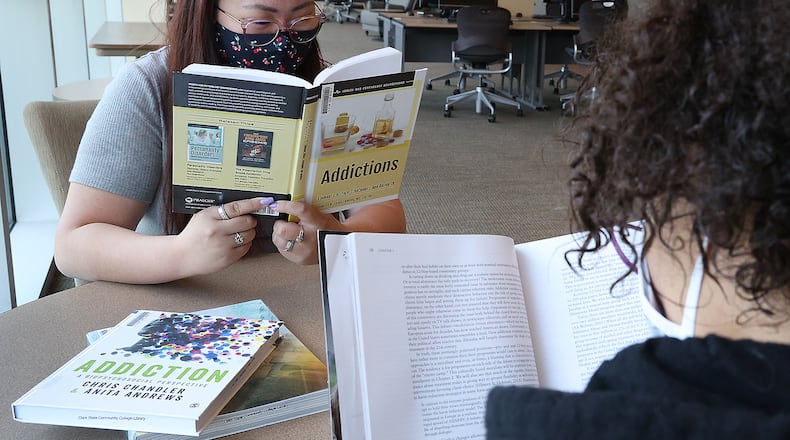The degree will align and build on the college’s associate of applied science in addictions and recovery services and social work technology degrees and short-term certificate programs in related fields.
“Clark State has a strong track record of responding to industry needs, and no need is more critical now than training skilled individuals in the field of addiction and integrated treatment studies,” said President Jo Alice Blondin. “The need for skilled addiction professionals has only become more acute during the pandemic, and Clark State is here to provide the training and education necessary to assist in this critical health care need.”
The degree was proposed based on research conducted over the past decade that shows nearly 80% of those in need of addiction treatment were also in need of mental health treatment. Other programs in addiction studies don’t have an emphasis on the mental health component, Blondin said.
“The degree will be the first of its kind to educate and train future treatment providers to be proficient at both of these areas to better serve clients,” she said.
The college is partnering with several human and mental health providers such as social services, correctional facilities, mental health facilities and homeless shelter networks, and the college has already secured preliminary agreements to provide up to 40 practicum sites per year for the degree.
“This BAS program will focus on the clinical aspects of addictions treatment and mental health screening which is in the scope of licensure they are eligible for at this level,” said Carin Burr, professor of social services. “The client base in addictions and mental health treatment has become more complex and co-occurring in nature.”
The college will also seek accreditation from the National Addictions Studies Accreditation Commission (NASAC). The closest bachelor’s program for addiction studies is over 50 miles away, and no other program is nationally accredited with the NASAC, Burr said.
“Most current four-year programs in the area are social work-specific and focus mostly on case management, social work systems concepts and referrals, not so much on building clinical skills like motivational interviewing, group process and cognitive-behavioral skills training as this program does,” she said.
Clark State received approval for its first bachelor’s degree in 2018 for manufacturing technology management, and approval for its second bachelor’s degree in 2019 for web design and development.
About the Author

